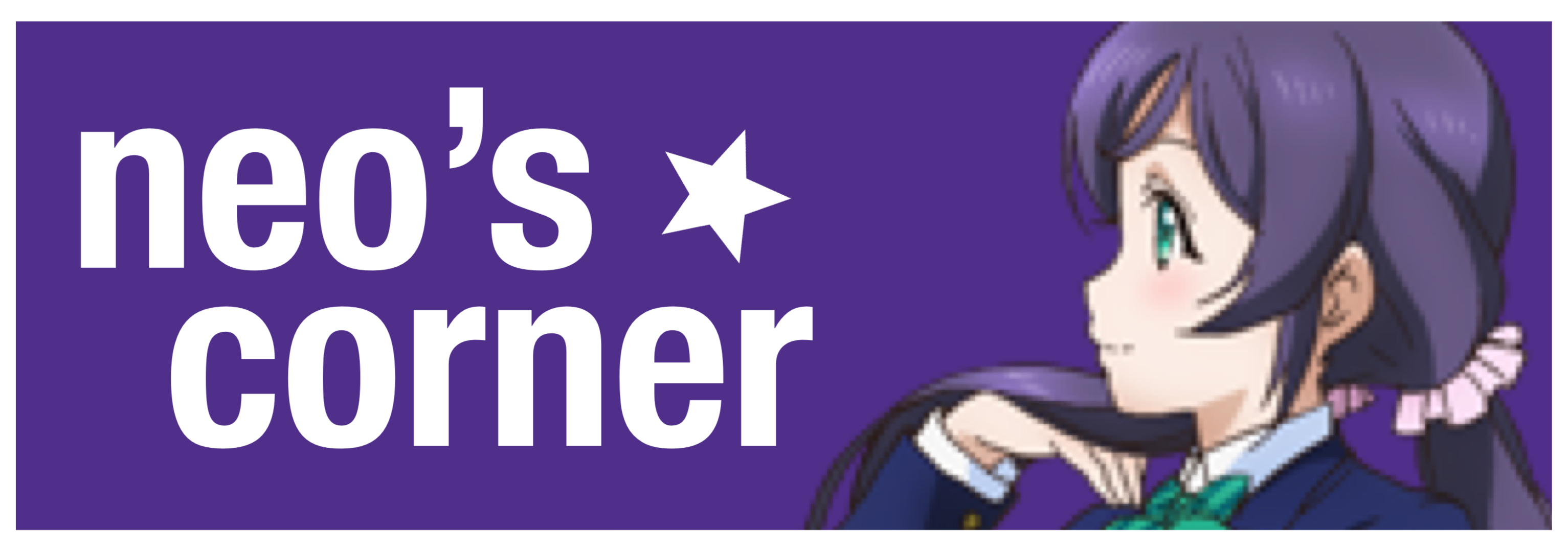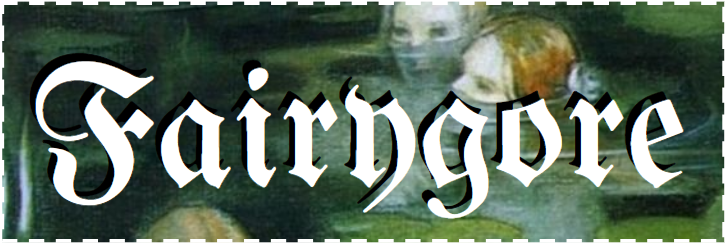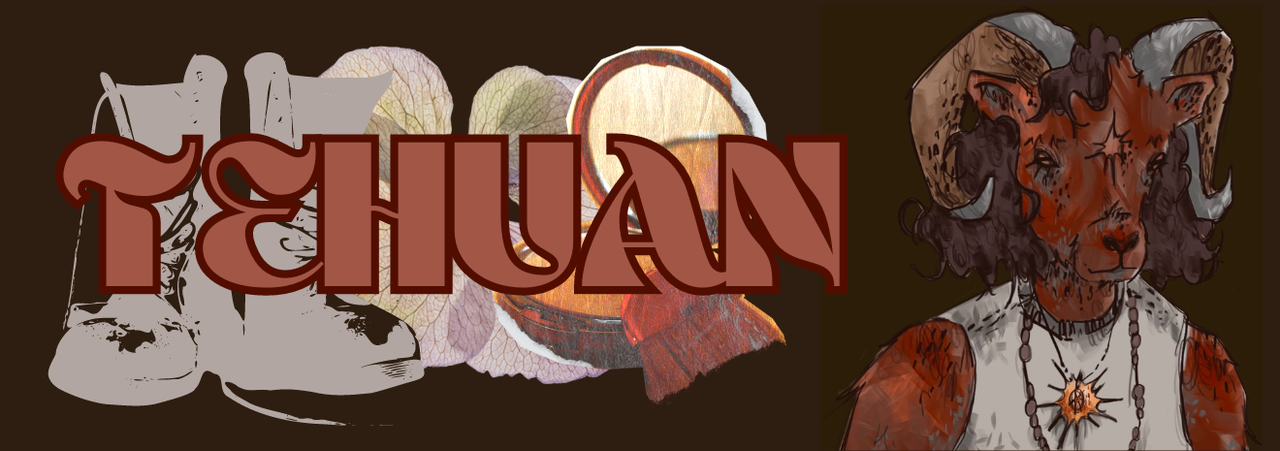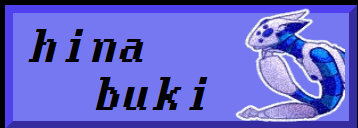
welcome to
bookbug book club!

I've been wanting to join a book club-y sort of thing for the longest time, and also, coincidently, have been meaning to read this book, Crime & Punishment for the longest time, so it seems like this was a great opportunity! Thank you so much, Maple and Vashti for setting this up!
 Notes From Underground by Fyodor Dostoyevsky (1864) | ★★★★★
Notes From Underground by Fyodor Dostoyevsky (1864) | ★★★★★
Like I said in the entry for Crime & Punishment, I've already read this in a college Russian Lit class and, at the time, it meant a lot to me and there are certain lines that I still think about a lot. In fact, I'd consider this to be one of the most influential books of my life (the other major ones being Father & Sons by Turgenev and We by Zamyatin).
Again, there are so many things to talk about, but I'll just mention what has particularly stuck out to me after all these years: the argument around whether man is "nothing but a sort of piano key or a sprig in an organ" still haunts me. I wrote an essay around that topic for that class actually, and it was genuinely the most difficult essay I'd ever written and probably what's gotten me into writing essays in the present day. This particular statement from Trotsky, as quoted by Orlando Figes in his book Natasha's Dance, on the subject really struck me:
we first have to find out everything about man, his anatomy, his physiology and that part of his physiology which is called his psychology. Man must look at himself and see himself as a raw material, or at best a semi-manufactured product and say: 'At last, my dear homo sapiens, I will work on you.' (447)
Pair this with Stalin's idea of "the artist being the engineer of the soul" -- they believed that human nature could be changed solely by their environment and fully intended to act on that, leading to the development of the Soviet propaganda machine. At the time, reading about that was like a horror movie come to life for me; the entire time I was writing the essay, I could just hear the Kill Bill sirens going off in my head like, 'this is the most horrific, evil thing I could possibly imagine!' I wanted to hard reject this idea, consider it false simply because it made me personally extremely comfortable that people as a whole could be manipulated in such a way.
Which, in hindsight, doesn't make much sense: the problem is with the propagandists and their malignant intentions, not materialism itself. It makes me think of an interesting essay Kotte wrote about the anti-intellectual tendencies in modern leftist spaces, talking about how people's feelings are put above the actual truth. It's really kinda funny because this whole site is basically rooted in a materialist understanding of the world, but, in the not so distant past, I had such a negative reaction to it...
Anyway, I found a copy of that paper from back in the day. I wrote a lot about Aleksei Gastev and the Taylor System, the merging of man and machine, factory assembly lines, and the horrible, mindnumbing 'plug & chug' nature of most office work, but, more interestingly, I also talked about AI and neural networks. This was in 2019, and neither my prof nor the TA had heard of AI art before -- and I only knew about it because I watched carykh's Youtube videos playing around with them. It was only five years ago, but it feels like another world, doesn't it?
Overall, again, a really good book that gives you a lot to chew on.
 The Left Hand of Darkness by Ursula K. Le Guin (1969) | dnf
The Left Hand of Darkness by Ursula K. Le Guin (1969) | dnf
I'm sorry, I thought this was an interesting book and all, but I just can't bring myself to finish it at the moment for a mixture of personal reasons / not being in the right headspace and, also... I'm just not really a scifi / fantasy sort of person, honestly. Again, from what I've read so far, it has a lot of neat ideas and I honestly do really like Le Guin's writing style, but I think this is just too much lore for me to really get into / keep track of at the moment, sorry! For future reference, I only got to page 79 / 330...
One major thing I wanted to talk about, though: the way Le Guin shows both Mr. Ai and the King of Karhide as being incredibly stuck in their ways, unable to even imagine what other societies might be like is fascinating. Like, the King is disgusted to find out that other people are permanently one sex, unlike Gethenians who only adopt a sex briefly during their mating season (kemmer): "So all of them, out on these other planets, are in permanent kemmer? A society of perverts? ...I don't see why human beings here on earth should want or tolerate any dealings with creatures so monsterously different" (38). And Mr. Ai (a man from a more-Earth like planet sent here for political negotiations) cannot understand the Genthenians, either:
Though I had been nearly two years on Winter I was still far from being able to see the people of the planet through their own eyes. I tried to, but my efforts took the form of self-consciously seeing a Gethenian first as a man, then as a woman, forcing him into those categories so irrelevant to his nature and so essential to my own." (12)
I think this fundamental inability to step outside of oneself was just executed so well and it's given me a lot to think about!
When I'm actually mentally ready to read this, I think I really will enjoy it and get a lot from it, but, as it is now, this book is kinda just standing menacingly in the corner of my bedroom, haunting me, and I think the best way to deal with it is to officially admit defeat (for now, at least).
 Giovanni's Room by James Baldwin (1956) | ★★★★☆
Giovanni's Room by James Baldwin (1956) | ★★★★☆
The framing of Giovanni's Room is very interesting -- despite being written from a first-person perspective, it reads very much like a play. Sometimes this is intentionally presented to the reader, like shortly after David first meets Giovanni and they all head to the bar together, where the guys at the bar are described as falling into their usual routines "in a play they knew very well" to try and pick up Guillaume, complete with dramatic lighting and even the barmaid at one point walking "offstage." But this feeling of being constantly watched and judged permeates the whole book: David pretty much tries to base his entire life around the traditional image of a 'man,' desperately trying to play the role society wants him to play and ruining not only his own life, but that of everyone else around him in the process.
Even when alone, he seems to have internalized this judging eye. For example, the morning after his first gay experience with Joey, he recalls looking at their bodies wrapped up in the sheets and thinking:
But Joey is a boy, I saw suddenly the power in his thighs, in his arms, and in his loosely curled fists. The power and the mystery of that body made me suddenly afraid. That body suddenly seemed the black opening of a cavern in which I would be tortured till madness came, in which I would lose my manhood... A cavern opened in my mind, black, full of rumor, suggestion, of half-heard, half-forgotten, half-understood stories full of dirty words. I thought I saw my future in that cavern. I was afraid.
He worries about what Joey's mom, his father would think, and his thoughts spiral into all the horrible, homophobic things he's heard in the past. In a desperate attempt to avoid this fate, he forces himself to be with women, even saying he primarily proposed to Hella "to give [himself] something to be moored to." He describes his greatest 'dream' as living "with [his] manhood unquestioned, watching [his] woman put [his] children to bed" (the traditional, heterosexual life) and his greatest fear is apparently being genuine and true to himself, and therefore vulnerable.
Adding to this, he especially hates any form of gender non-conformity in either himself or others. Besides the aforementioned constant fear of having his manhood "questioned" or "lost," and his fear of people thinking he's gay, he also expresses an extreme hatred for men crossdressing or openly flirting with other men, refering to them as zoo animals or even "monkeys eating their own excrement." You unfortunately see this sentiment a lot in gay / lesbian media from the time, like I talked about how in one of the early issues of the lesbian newsletter, The Ladder (1956 - 1972), they said butch women were "the worst publicity we can get" and advised readers to try to assimilate as much as possible. Also, in The Ladder, we see this fear of being watched or even of strangers being able to read your thoughts. (By the way, apparently the archive.org links I used there went down, aaah! Here's another place you can read it.)
On that note, the book also very much brings to mind Ann Bannon's Beebo Brinker series, written around the same time. It also has the gay coming of age / overcoming self-resentment, fear of being found out, and, oddly enough, an older gay man (named Jack / Jacques, no less!) who acts as a sort of mentor to the protagonist and tries to gain younger men's affections via oysters (I wonder if it's just because oysters were seen as fancy and expensive or if there was some deeper meaning there??). But, the first two books, at least, are much happier and light-hearted in tone than Giovanni's Room.
All of that said, while I do feel a certain degree of sympathy for David with his whole internalized homophobia-dealie, by the time I finished the book, I was about ready to throw my iPad across the room -- god, what a jackass!! Torturing Joey, proposing to Hella even though he isn't even sure if he loves her, promising Giovanni he'll stay with him and then leaving without a word, running away from Hella and fucking some random dude, etc! Dude is beyond self-sabotaging, like he actively seeks to bring everyone else down with him in his angst!
The constant misogyny was also upsetting, with every woman depicted as some sort of combination of mother / homemaker / sex-object, and not as their own individual people. Ugh...
 Convenience Store Woman by Sayaka Murata (2018) | ★★★★★
Convenience Store Woman by Sayaka Murata (2018) | ★★★★★
preliminary info / discussion
I already read this and kinda voted for it without thinking, but, at the same time, I also absolutely loved this book and, if I could, would shout from the rooftops and beg everyone else to read it as well, so it's fine. I have my original review posted here if you wanted to look at it, but I'll reread it and write some of my other thoughts here afterward. ^^
comments
After rereading, I don't really have anything else to say that I didn't already mention in my original review. I did make some notes as I was reading, but they were pretty much all just me further relating to Keiko...
One thing that I've noticed from fellow Book Bug members and some other reviews I've seen is people being upset or confused why this book is often described as "funny." I think that's coming from a misunderstanding, though -- I don't think they're, like, laughing at Keiko or anything, I think they're just appreciating Murata's blunt sense of humor. Like, when she refers to Shiraha as her pet, or hitting a kid with a shovel to shut him up, or even the part towards the beginning where she wonders where the customers are coming from, because the convenience store is in the middle of a business district but the people seem like normal residents, so she imagines them living in the earth like cicadas. I don't really think there's a better word in English to describe that sort of thing besides "funny" or maybe "quirky"?
On that note, I started reading another book by Murata, Earthlings. I'm only a little over a third of the way through it so far, but I realized that the end of the month was quickly approaching, so might as well write this now, eh? Anyway, Earthlings seems to deal with a lot of similar themes as Convenience Store Woman, like, rather than talking about the Stone Age, the main character (Natsuki) worries about becoming a "tool" for the good of society, either by becoming a worker or a "baby-making factory." The major difference so far, at least, is that Earthlings is quite a bit... darker and more viscerally uncomfortable to read, honestly (namely, due to extreme depictions of child abuse), but the bizarre, surreal vibes are still very much here, or even put into overdrive. Like, whereas Keiko bases her entire life around the convenience store, Natsuki's coping mechanisms for dealing with her abuse are framed as her "magical powers" and she pretends to be a magical girl / alien / etc (and, apparently, it just gets so much crazier as you go on!). But, I'm gonna stop here before I make a fool of myself, talking about a book I'm not even halfway through yet...
 Crime & Punishment by Fyodor Dostoyevsky (1867) | ★★★★★
Crime & Punishment by Fyodor Dostoyevsky (1867) | ★★★★★
preliminary info / discussion
(I'm reading the 2003 Penguin Classics edition, translated into English by David McDuff, by the way.)
In the Russian lit class I took in college, we talked a lot about Russian history and the cultural context of the pieces we read and I think it really added a lot to my reading experience more than any other lit classes I've taken! So, I wanted to start with that here. ^^
The introduction to this edition says C&P was written as an extension of Notes from Underground; it's very easy to see the parallels there, but, namely, both are about nihilistic, disillusioned and quite frankly pathetic men, and they were written specifically in response to Nikolai Chernyshevsky's What is to Be Done?, which was itself written in response to Turgenev's Fathers & Sons. (I absolutely loved Fathers & Sons, by the way, and I've kinda made it into a life goal to read every book inspired by it! I haven't actually gotten around to reading What is to Be Done? yet, but it's apparently a socialist / feminist utopian novel -- needless to say, I'm very curious!)
Anyway, our boy Dosto's whole thing is basically that he was an extremely religious man, who was, by nature, an atheist. As Orlando Figes says in his 2002 book, Natasha's Dance: A Cultural History of Russia:
Here was the fundamental question which Dostoevsky posed, not just in [Brothers Karamazov], but in all his life and art: How could one believe in God when the world created by him was so full of suffering? It was a question he was bound to ask when he looked at the society in which he lived. How could God have made Russia? (328)Dostoevsky was deeply against both the nihilism and the utopian thinking that captivated the educated youth at the time, mostly because he himself was an idealistic socialist when he was younger. He had fallen into a certain friend group, and, through them, came into possession of a forbidden letter criticizing the government and whole of Russian society -- and so, in 1849, he was sentenced to death, but at the last minute, he was spared and sent to a labor camp in Siberia, instead. There, his previous idealism, believing in the inherent kindness and goodness of everyone, was completely destroyed: he was surrounded by the absolute worst of the worst criminals, who didn't even show the slightest bit of remorse for their crimes. To try to cope with this harsh reality, he had to spin a new narrative:
he saw this barbarism as the 'filth' of centuries of oppression concealing, like a 'diamond', the peasant's Christian soul. (Figes 331)It seems that this is a major theme in Crime & Punishment, but I haven't finished reading it yet, so I'll hold off here.
12/09 to 12/10/23: finished part one
I don't really have any valuable commentary to give at the present, so I guess I'll just leave a couple of tiny notes:
- the only other Dosto I've read is Notes from Underground, which is… a very different style than this book. I quite like Dosto's prose, though -- really paints a picture of the scene in your head! a horrible depressing picture, but a picture, nonetheless.
- I really wasn't expecting Rodya to be such a bleeding heart! I was expecting him to be a proper Nihilist à la Bazarov from Fathers & Sons (ie: casually misogynistic), but he actually had a lot of sympathy for women (which teetered in and out with his growing Nihilism…).
- on that note, I feel so bad for his mom and sister. in ruining his own life, he's also ruined theirs and everything they've sacrificed for him…
12/30/23: ...final thoughts
Oops, sorry, I kinda put off reading until the end of the month and only just now finished!
This really was quite a ride of a novel! Dosto really knows how to pull at the heartstrings, huh? It was somehow funny and heartwarming and devastating and uncomfortably relatable and completely unhinged all at the same time.
Some little comments:
- Every interaction Rodya has with the police is absolutely insane, omg. Being a weeb, all I could think of were Ace Attorney-style breakdowns and Light / L's overlapping monologues.
- There were several comments that you really have to stop and chew on for a while... All of the little rants were also fun, especially when Razumikhin was drunk and talking about the importance of nonsense. A lot of overlapping ideas with Notes from Underground, but also a lot of new ones.
- Lots of dunking on socialists, in a very soyjack-strawman kinda way. The popular socialist ideas at the time really were crazy, though! I wrote a paper in that Russian Lit class about the whole "mathematical" revolution and how they wanted to "shape people like clay" and "treat them like a piano key," actually. Genuinely, researching for that freaked me the hell out... On that note, I'd also really recommend Zamyatin's We (1924) about a similar "mathematical" socialist Utopian-Dystopia.
- Proto-cancel culture and callouts, lol. (Or rather, it's just always existed and people are just like this...)
- On that note, loved the scene where Dunya basically told Luzhin to fuck himself! She's so cool <3
- Razumikhin's such a little ray of sunshine, isn't he?
In regards to major themes: this is something that I've noticed in a lot of Russian novels, but, above all else, there's so much warmth and tenderness and love here! No matter how much Rodya wants to isolate himself, no matter how much he lashes out at them, no matter his crimes, his friends and family still want to help him and stay by his side. Not to mention how they're planning their lives out together, both before and after Rodya turns himself in... Like, as an also twenty-three year old shut-in, the whole theme of making connections with others just really got to me. 🥹
Also, some cultural context: the bit at the end with Sonya following Rodya to Siberia is a reference to the Decemberist wives. The Decemberists were a bunch of noblemen who previously served in the military alongside peasants during the 1812 Napoleonic invasion and, in doing so, were first properly acquainted with Russian culture. Prior to this, Russian nobles excessively overidolized France to the point of barely even speaking Russian and didn't really see peasants as actually being people, but, afterwords, they began to identify themselves with the Russian peasants and Russia itself (Figes 75-6). This eventually led to the December Revolt in 1825, where these noblemen sympathetic to the plight of peasants tried to overthrow the government. And failed horribly and they were all arrested, some executed and some sent to Siberia (89). In some cases, the condemned's wives decided to follow their husbands and suffer with them, most notably Maria Volkonskaya who along with her husband were basically worshipped by later progressives for their sacrifice to the cause. When Dosto himself was sentenced to Siberia in 1850, he met with the Decemberist wives and was given a copy of the New Testament, which was the only book allowed in prison and he slept with it under his pillow and treasured it (335). I was wondering if he was going to mention that with Rodya in prison, and he finally did on the very last page of the epilogue. You can also see the idolization of suffering throughout the novel.
Besides that, I already talked about how Dosto's an atheist who desperately wanted to believe in God-thing in the intro, but this quote after Marmeladov's death really got me:
"And what am I supposed to do with these?" she said, interrupting him sharply and irritably, pointing at her urchins.
"God is merciful; trust in the help of the Almighty," the priest began.
"Oh, go away. Merciful He may be, but not to us He is!"
"It's a sin, a sin, to say such things, dear lady," the priest said, shaking his head.
"And what about that -- isn't that a sin?" Katerina Ivanovna shouted, pointing to the dying man. (221)
Later, it isn't "God" who comes to save their family like the priest insists, but rather Rodya who acts automatically out of the decency in his heart after seeing a man he got to know by chance injured. And then, despite the fact that he's an atheist, Rodya asks several people to keep him in their prayers, just so he is reassured that people love him and care about him... 🥹 What's good in life, what makes life worth living is human connection and friendship...
Ah, this really was such a good book! Excited to hear what other people thought of it!! ^^










































